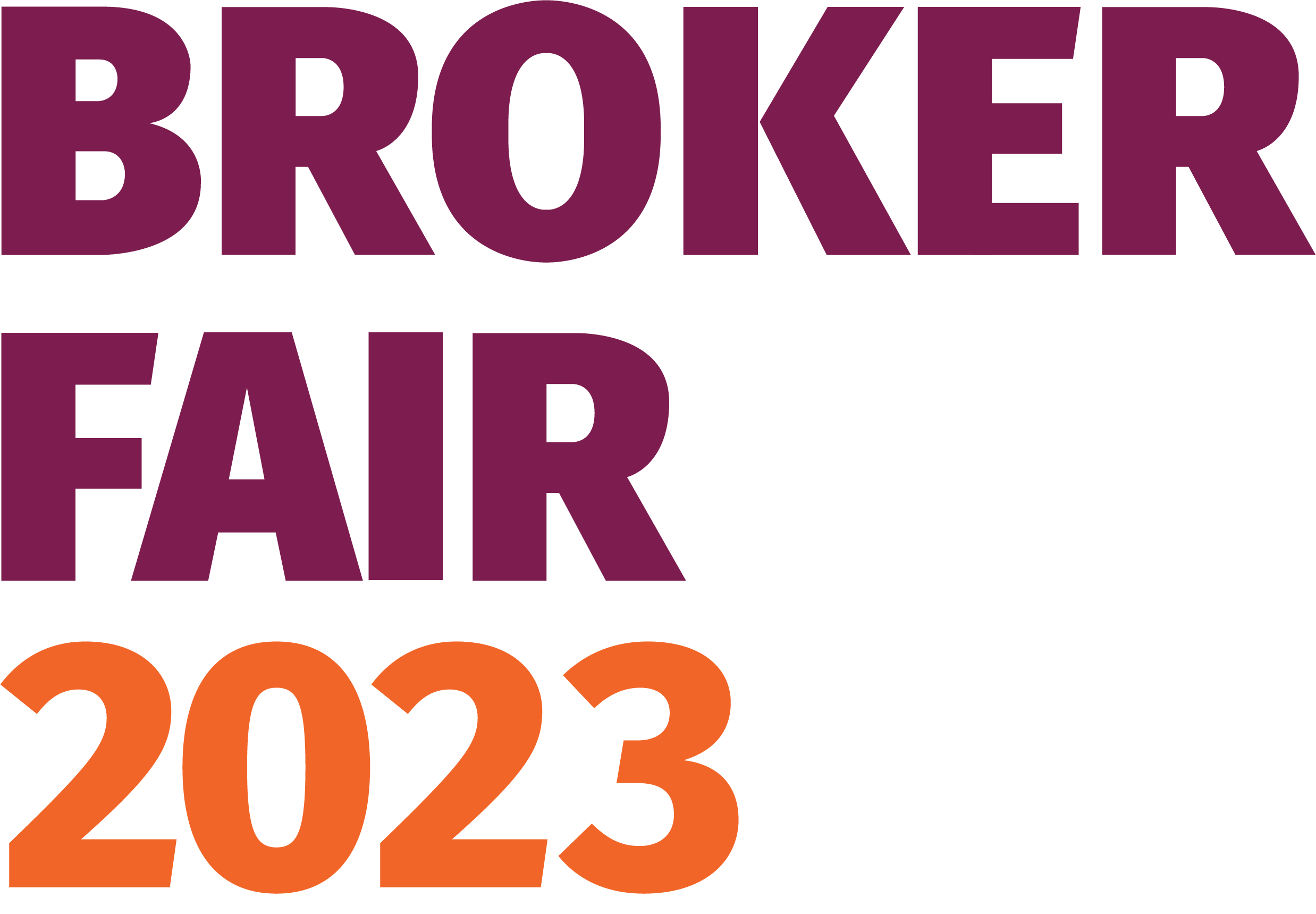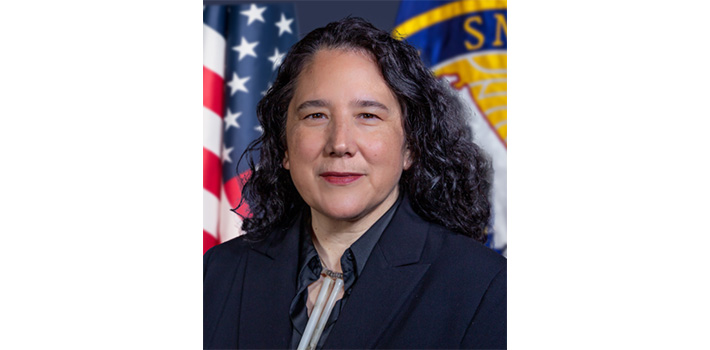Archive for 2023
Only a Few Weeks Until Broker Fair 2023
April 13, 2023 The clock is ticking. Broker Fair 2023 at the New York Hilton Midtown is just around the corner on May 8th. Once again, professionals from the small business lending, commercial financing, revenue-based financing, leasing, equipment financing, factoring, and mca industries, will come together in the heart of New York.
The clock is ticking. Broker Fair 2023 at the New York Hilton Midtown is just around the corner on May 8th. Once again, professionals from the small business lending, commercial financing, revenue-based financing, leasing, equipment financing, factoring, and mca industries, will come together in the heart of New York.
This is the biggest annual small business finance conference in Manhattan and the sixth one to have taken place since 2018.
Register here. For inquiries or questions, email events@debanked.com.
See last year’s sizzle reel:
Secured Lenders Maintain Confidence Despite Inflation, Interest Rates
April 13, 2023 NEW YORK, NY, April 13, 2023 ─ Steady confidence in the asset-based lending market marked the fourth quarter, according to data released by the Secured Finance Network. Lenders maintained a positive outlook despite persistent inflation and rising interest rates.
NEW YORK, NY, April 13, 2023 ─ Steady confidence in the asset-based lending market marked the fourth quarter, according to data released by the Secured Finance Network. Lenders maintained a positive outlook despite persistent inflation and rising interest rates.
SFNet surveyed bank and non-bank asset-based lenders (ABLs) on key indicators for its quarterly Asset-Based Lending Index and SFNet Confidence Index.
“As the U.S. economy remains under stress, the asset-based lending industry is primed to meet new demand,” said SFNet CEO Richard D. Gumbrecht. “Commitments have increased and portfolio performance remains solid. Should we see a recession, the ABL industry stands ready to provide vital working capital.”
In the most recent Confidence Index, lenders pointed to the resiliency of an industry that Gumbrecht describes as having “all weather” status. The most positive expectations were in the demand for new business, hiring and client utilization. But banks and non-banks shared low expectations around the overall business conditions.
Survey highlights
For banks, asset-based loan commitments (total committed credit lines) were up 2.4% in the fourth quarter compared to the previous quarter. Outstandings (total asset-based loans outstanding) fell by 1.6%, however. Commitment runoff increased by 7.8% quarter over quarter.
“Both new commitments and commitment runoff remain well below their year-ago levels for banks reporting in Q4 2021 and Q4 2022,” the report said. “Lower new commitments and higher commitment runoff reduced net commitments in Q4, the second consecutive quarter of decline.”
Non-bank lenders, meanwhile, saw total commitments rise by 6% last quarter. Total outstandings were up, as well, by 1.7%. Compared to the same quarter last year, total commitments and outstandings for non-banks rose by 10.4% and 18.6%, respectively.
“Further, a large majority of non-banks reported increased new commitments in Q4, which grew by 277% from Q3,” the report said.
Commitments runoff dropped by 21.9% from the third quarter. A sharp rise in new commitments and decreased runoff caused net commitments for non-banks to reach their highest level since Q3 2020, the report said.
In terms of credit-line utilization for bank lenders, the rate fell to 40.1%, marking the second consecutive quarterly decline after more than a year of growth. Non-banks saw a similar trend: Their combined utilization rate dipped from a multi-year high of 59.6% in Q3 to 53.8% last quarter.
“The drop for both bank and non-bank rates suggests that the ABL industry is returning to traditional seasonal fluctuations in utilization,” the report said, “as borrowers pay down outstanding balances, they typically build up in the third quarter of the year as they prepared for the holiday shopping season.”
As for portfolio performance at the end of 2022, banks started to see movement toward “more normal levels” after record strong performance in previous quarters. For banks, criticized and classified loans, non-accruals and gross write-offs all rose in Q4 relative to Q3 but are still at levels well below historic highs. Non-banks continued to report solid portfolio performance; 30% of survey respondents reported a decrease in non-accruals quarter-over-quarter and none saw an increase.
Now, in early 2023, the U.S. economy is at a fork in the road, the report said. “A strong labor market and low energy prices could continue to propel the economy; or, persistent inflation, weak real income growth and sectoral slowdowns could prompt a recession. For now, a period of relatively weak growth is the best bet, but asset-based lending, as an ‘all-weather’ industry, is well-positioned to meet new demand in any scenario.”
Details
For more publicly available information, click here. SFNet members who participate in the surveys have access to additional data and detailed reporting.
For a broader view of ABL trends and this industry, visit SFNet’s Annual Asset-Based Lending Industry Survey for 2022.
About Secured Finance Network
Founded in 1944, the Secured Finance Network (formerly Commercial Finance Association) is an international trade association connecting the interests of companies and professionals who deliver and enable secured financing to businesses. With more than 1,000 member organizations throughout the US, Europe, Canada and around the world, SFNet brings together the people, data, knowledge, tools and insights that put capital to work. For more information, please visit SFNet.com.
Media Contact:
Michele Ocejo, Director of Communications
Secured Finance Network
mocejo@sfnet.com, 212-792-9396
SBA Lifts SBLC Moratorium
April 11, 2023
It’s official. The SBA is lifting the moratorium on licenses for Small Business Lending Companies (SBLCs), ending the 40-year pause that began in 1982. The SBA is also adding a new type of lending entity called a Community Advantage SBLC while also removing the requirement for a Loan Authorization in the 7(a) and 504 Loan Programs.
The 37-page rule, which is slated to be published in the federal register on April 12th, included the SBA’s analysis of all the comments it had received, including the criticisms. Some argued, for example, that opening up the doors would allow the unscrupulous world of fintech to participate in the market. The SBA was unmoved by this, countering that existing participants already rely on fintech.
“SBA has for many years provided oversite to non-depository entities participating in the SBA business loan programs,” the SBA said. “This includes SBLCs, non-federally regulated lenders (NFRLs), 504 Certified Development Companies (CDCs), and Microloan Intermediaries. In fact, most all lending institutions incorporate the use of financial technology in their delivery of loans and other financial products.”
One such fintech that has been eager to become a participant, issued a prepared statement on the decision earlier today.
“Funding Circle applauds the Biden Administration for ending the SBA’s 40 year moratorium on licensing additional state and SBA licensed and regulated non-depository lenders thus ending its lender oligopoly in favor of competition and innovation,” said Funding Circle. “This is an opportunity for the more than 8,000 community banks and credit unions that don’t offer 7(a) loans to partner with Fintech lenders to offer affordable loans quickly in underserved communities. Congress should now focus on ensuring SBA has the resources necessary to license more than three new lenders in its SBLC program in order to increase competition and distribution of government guaranteed loans in underserved communities.”
The SBA also published new rules on April 10th that will amend various regulations governing the 7(a) and 504 loan programs.
Georgia’s Commercial Financing Disclosure Bill Now on the Governor’s Desk
April 10, 2023Georgia is on track to become the latest state to pass a commercial financing disclosure law. This state’s bill passed through both the House and Senate and was delivered to Governor Brian P. Kemp on April 5th to await his signature. When that happens, Georgia will join a list of mandatory disclosure states that includes California, New York, Virginia, and Utah.
Other states that currently have disclosure bills up for debate in their respective legislatures include: Connecticut, Missouri, North Carolina, Florida, New Jersey, Kansas, and Illinois.
Shaping Industry Experts With the CLFP
April 10, 2023 The CLFP (Certified Lease & Finance Professional) is a certification program for professionals in the equipment finance and leasing industry. The end-to-end course covers sales and marketing, credit, documentation, funding, and various accounting intricacies specific to the leasing and finance arena.
The CLFP (Certified Lease & Finance Professional) is a certification program for professionals in the equipment finance and leasing industry. The end-to-end course covers sales and marketing, credit, documentation, funding, and various accounting intricacies specific to the leasing and finance arena.
“It is a designation now that a lot of employers look fondly upon when they are trying to hire for positions because it indicates that the person who has the designation has basically gone through a very extensive process to learn everything about the industry as a whole…,” said Lia Wax, President of CLFP.
Within the last few years, COVID forced the academy to go virtual but has recently gone back to offering in-person classes in regions that span from the west coast to Philadelphia to Chicago and more. They have also launched an online self-paced option where a candidate can choose to do it at their leisure through a prerecorded self-paced product.
“Usually, the academies are hosted by somebody within the industry and then the company that’s hosting the ALFP (Academy for Lease & Finance Professionals) can decide whether or not they want it to be a private one for just their own employees or if they’re going to host the public one.”
The academy offers two options; a two-day option, which is two full eight-hour days of instruction and then we have a three-day option, which is four to four-and-a-half hours a day for three days. Between them both, they already have 12 courses scheduled up to June.
Once the course is completed, the academy maintains ongoing contact with students throughout the year, including an annual CLFP day.
People can also get together in various regions to network at different conferences. For example, the third day on NEFA’s agenda was closed by a CLFP toast to give those individuals the opportunity to discuss their journey in the industry with other members.
“I think the driving force here is to make sure that people in our industry are as educated and as informed as they possibly can be about the industry that we’re working in,” said Wax. “It’s great for somebody in sales or credit or accounting to know their facet of what they do, but I think the value-add for the foundation is we are able to provide education to applicants about all the different pieces that go into making up the industry and how it functions. And it helps us see the bigger picture.”
No, FedNow Payments are Not a Digital Currency
April 9, 2023 The Federal Reserve is launching a new instant payments service called FedNow in July 2023. However, there is apparently a common misconception that FedNow is a form of digital currency or a step towards eliminating cash. On April 7, the Fed felt it had to release a statement to say that a central bank digital currency (CBDC) was not currently in process.
The Federal Reserve is launching a new instant payments service called FedNow in July 2023. However, there is apparently a common misconception that FedNow is a form of digital currency or a step towards eliminating cash. On April 7, the Fed felt it had to release a statement to say that a central bank digital currency (CBDC) was not currently in process.
“[FedNow] is like other Federal Reserve payments services, such as Fedwire and FedACH,” the Fed wrote. “FedNow will be available to depository institutions, such as banks and credit unions, in the United States and will enable individuals and businesses to send instant payments through their depository institution accounts. Instant payments allow individuals and businesses to send and receive payments within seconds at any time of the day, on any day of the year, so that the receiver of a payment can use the funds almost instantly.”
FedNow could offer a compelling usecase in the alternative lending industry but that will remain to be seen. In the meantime, as far as CBDCs go, the Fed says that it would need support from Congress and the executive branch “ideally in the form of a specific authorizing law” to consider issuing one. CBDCs have been a popular subject as of late given the total control they could give a governmental authority over its money. Among the potential capabilities would be the power to technologically deactivate or cancel anyone’s money if the government felt it was it being used for some unlawful purpose.
Mental Health in The Funding Game
April 6, 2023 Technology, finance, healthcare, sales, and marketing have all been reported to have the highest levels of employee stress and mental health issues. Eager, driven executives of this industry work around the clock to close deals, finance equipment, and conjur fresh new ideas. While alternative finance can be deemed the industry that never sleeps, the people pushing it forward should remember not to push themselves too hard. Prioritizing one’s mental health can often be found at the bottom of one’s checklist but should be the first thing assessed before starting the day.
Technology, finance, healthcare, sales, and marketing have all been reported to have the highest levels of employee stress and mental health issues. Eager, driven executives of this industry work around the clock to close deals, finance equipment, and conjur fresh new ideas. While alternative finance can be deemed the industry that never sleeps, the people pushing it forward should remember not to push themselves too hard. Prioritizing one’s mental health can often be found at the bottom of one’s checklist but should be the first thing assessed before starting the day.
“It is critical that we start really focusing in on understanding that mental health is part of every everything we do, every part of who we are, how we see ourselves, how we interact with others, how willing we are to take risks, how willing we are to be ambitious, and how forgiving we are of ourselves when we make mistakes,” said Nancy Robles, President at Eastern Funding LLC.
Success is an adrenaline rush and can be addicting if not managed properly. Jessica Garcia, CEO at Simplified Funding Solutions, at one point struggled to find a balance between her work and home life, leaving her feeling burnt out more days than some. She believed the more hours put in working on a deal the faster results she’d attain in return. Finding ways to regroup and reassess, she created her own methods within the workplace to cater to her mental health.
“I started doing like a lot of self-care within the workplace,” said Garcia. “So what I mean by that, as opposed to sitting at my desk and being glued to a hard phone on a conference call for an hour, I would just put it on my cell phone through my air pods, walk around, grab a stress ball, sightseeing, have meditation music in the background at a very low volume to help stimulate. I would turn on some candles to help with the aromatherapy and I noticed once I started doing those things, I was able to pace myself more and I was also happier…”
Meanwhile, For Nancy Robles, she’s not just the president of a company but also a full-time mother of five. The pressure of performing as a woman of color in this industry while juggling motherhood are constantly clashing and finding themselves at odds with one another. But as of late, Robles has learned to emphasize mental health into her daily routine.
“Over the past several years, I’ve prioritized my mental health and as I have prioritized my mental health that comes with a lot of self-care, a lot of healing,” said Robles. “I’m a big advocate for therapy, everybody should go to therapy. I’ve been going to therapy for seven years.”
 Unlike Robles and Garcia, finding a work/home life balance has its own unique twist for Sonia Alvelo whose fiancée is also her partner at work. And after 15 long years together they’ve managed to find stability between the two.
Unlike Robles and Garcia, finding a work/home life balance has its own unique twist for Sonia Alvelo whose fiancée is also her partner at work. And after 15 long years together they’ve managed to find stability between the two.
“Communication is big for us in everything that we do, in order to be better,” said Alvelo, CEO at Latin Financial. Administering daily mental health exercises in one’s routine can make all the difference but having the support of one’s employer can make an even bigger one.
Incorporating necessary steps and open communication in the workforce can help a team or staff to not feel as if they are being hammered by their 9 to 5. On this, Jessica Garcia has noticed companies moving in the right direction, implementing more group activities and break spaces for women especially as they are growing in number in the finance sector.
“We’re getting that softer, feminine touch, in regard to ‘it’s okay to take a day off if you’re over it, it’s okay to go home early if you’re just burnt out,’” said Garcia. “’It’s okay to ask for help if you’re overwhelmed and need assistance from the team to complete a task. It’s okay to be vulnerable, it’s okay to be human,’ we’re not robots, we’re not machines. And I think in the past two years, especially after the pandemic, we’re starting to see that synergy of being there for each other.”
Alvelo recognizes the significance mental health has within a company as a CEO. Weekly discussions with her team throughout the years has helped for a happy community life in her office.
“I have a responsibility as a CEO and I have a big one on top of that because I’m a Latina CEO. I have to bring things to the table that other companies may not talk about it or may not talk about enough.”
Success starts within oneself to achieve it anywhere else. In order to put your best foot forward in this industry take time, check in, and evaluate your mental health.
“One of the critical pillars of having any success in any type of career,” said Robles, “if you own your own company, if you want any successes, you want to have your relationships in your family, your relationship with yourself, which is the most important one, you really have to address mental health first.”
Don’t Run To The Big Banks Because of SVB!
April 6, 2023 The weekend of March 10 saw the largest and most significant banking failure in the United States since 2008 until the Federal Government announced its (don’t-call-it-a-bailout) deposit guarantee on March 13.
The weekend of March 10 saw the largest and most significant banking failure in the United States since 2008 until the Federal Government announced its (don’t-call-it-a-bailout) deposit guarantee on March 13.
Silicon Valley Bank and Signature Bank were thought to be niche and regional banks whose actions wouldn’t affect the broader banking industry, but when they had to sell some of the long-term US treasury bonds that they over-invested in at a loss as their worth plummeted when interest rates ballooned, panic quickly spread and launched the first social media run on the banks. To stop this, the Government guaranteed that all accounts in both banks would be guaranteed their full sums, even if they were over the FDIC-insured amounts of $250,000.
So with the benefit of two weeks of hindsight, how did this collapse affect the cash advance industry?
While Silicon Valley Bank catered primarily to the venture capital and tech industries, Signature Bank in New York was known for its welcome embrace of crypto and alt-finance businesses, and many MCA companies had accounts there.
When Signature Bank failed, some of the MCA companies we work with at Better Accounting Solutions started considering transferring their accounts to the “Big Four” banks: JPMorgan Chase, Bank of America, Citigroup, and Wells Fargo.
Their reasoning made sense: Amid criticism of their decisions in the aftermath of this collapse, representatives of the Government and financial regulatory agencies suggested they wouldn’t follow the approach they employed this time round if another bank failed, and instead would weigh up the specific bank’s size and significance in each specific instance to decide whether or not to guarantee depositor’s accounts.
Understanding that their funds would not be protected if there was another crisis in the banks they worked with, several cash advance companies wanted to move their funds to banks that would be considered “too big to fail”, and their money would be guaranteed by the Government in the case of a calamitous collapse. They also wanted to start spreading out their funds across multiple banks to not surpass $250,000 in any of them, to ensure their money was always insured.
There are two issues with this response to these legitimate concerns:
- When a merchant cash advance company starts working and relying on the services of a big bank, they do that without understanding the rules and regulations these banks impose on their clients and how they may be affected, particularly a cash advance company.
Even if you try to hide what your business does, once the bank finds out that you’re in the MCA space-and count on them finding out sooner rather than later-, you’re business will likely be subjected to a thorough, extensive and painful review process to determine whether you’ve broken any of their rules. During this time, they may freeze your accounts (on average for 3 months) and cripple your business’s ability to operate during this time.
- Additionally, when trying to stick the FDIC-insured sum of $250,000 in each bank, you’re limiting yourself to an extremely inefficient and unsustainable way of doing business. It affects your ability to cover your operating costs, fund deals and have money available on hand when you need it.
To responsibly manage these risks while balancing your ability to do business, this is what we’ve been advising our clients:
Before beginning to work with any bank, speak to people involved in the MCA space (brokers, funders and even accountants) to get a list of which banks are friendly to the industry. Ensure that they understand the business and don’t have onerous regulations and practices that will not allow you to run your business without their constant intervention.
Once you know which banks to work with, we advise our clients to open accounts with two of these banks and split their funds equally between them. This ensures they have somewhere to send their money in case one collapses, and if they can’t get it out in time, they still have access to half of their capital while waiting to see how the Government responds. This 50/50 approach allows MCA companies to run and grow their merchant cash advance businesses efficiently during ‘times of peace’ while anticipating and preparing for the consequences of another collapse.
As the Government proved during this crisis, in the age of rapid communication a massive run of the banks can be mobilized within minutes, which forced the Government to (“not”) bail out a small bank to stop a larger collapse. I-and other experts- remain convinced that in the event of another collapse, they’ll be forced to follow this same policy and guarantee all deposits of all sizes at all banks, which is why I confidently advocate for this 50/50 approach.
An important disclaimer: This is an opinion article analyzing the specific collapse of Silicon Valley Bank and Signature Bank, and the response MCA companies should have to it broadly speaking. Every case and merchant cash advance company is different, and for specific advice and guidance, they should contact the author directly.





























